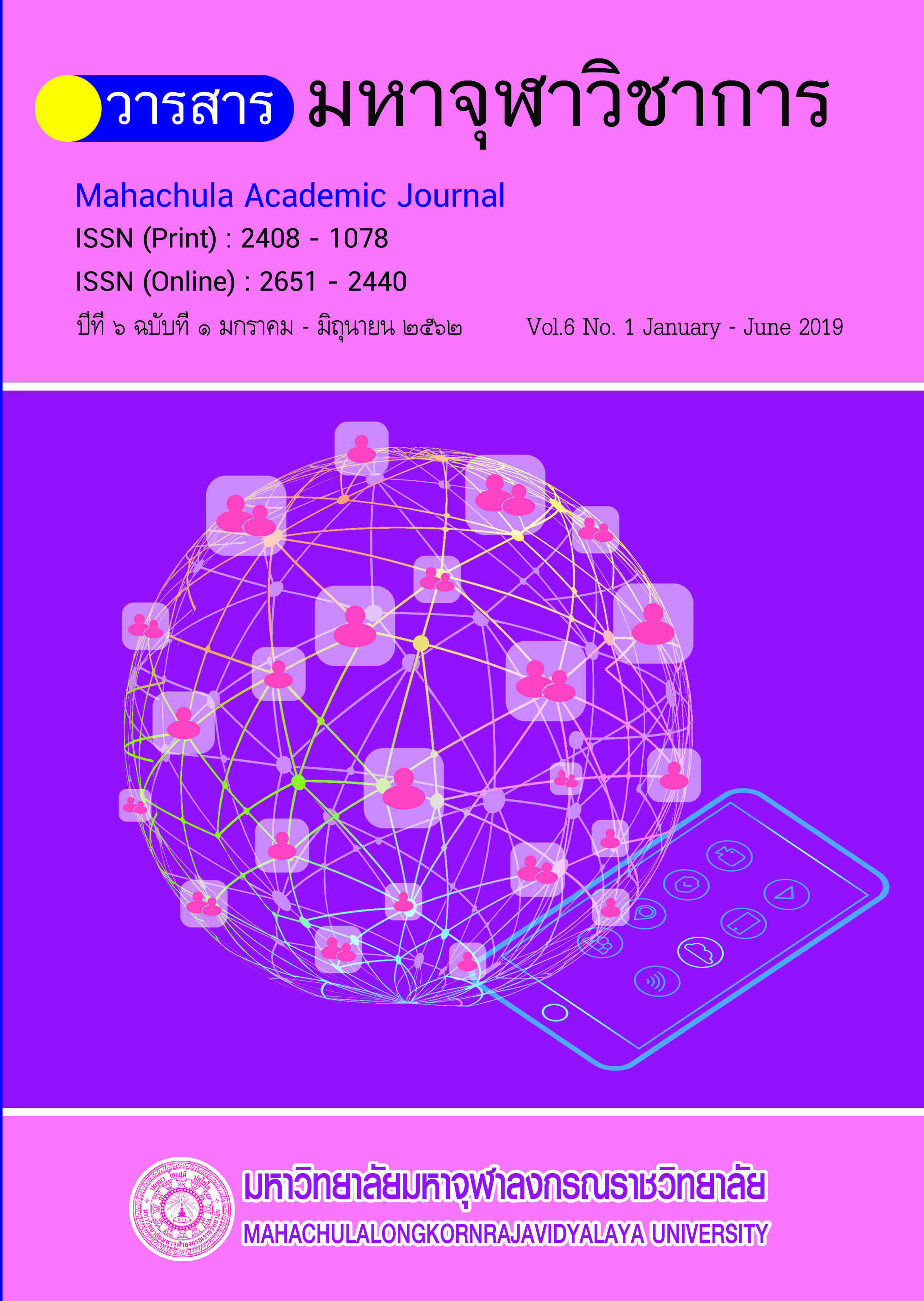Speech Acts in the Television Advertisement Affecting the Comsumers Based on the Ultimate Truth Theory of Mind
Main Article Content
Abstract
The aims of this research were to: 1) study speech acts in television advertisement; and 2) study results of speech acts in television advertisement towards consumers based on the ultimate truth theory. The research process was divided into three steps. The sample group consisted of 100 cases of people in Samphanthawong District. The sampling method was multistage stage sampling. The research tool was questionnaire. And, the statistics used for data analysis were frequency, percentage, standard deviation, T-test and F-test.
The findings revealed that types of speech acts in television advertisement comprised of speech acts of directives, speech acts of persuasive, speech acts of commissive, and speech acts of expressive. The speech acts most frequently found were speech acts of persuasive. For the results of speech acts in television advertisement towards consumers, the majority of population was female, accounting for 57.00 percent, and feeling to television advertisement was at moderate level. They prefer to speech acts of warning and speech acts of informative. The hypothesis test found that different viewing of television advertisement resulted in different feelings to television advertisement. Moreover, the population with different genders, ages, education backgrounds, occupations, and most viewed television channel have same results to feeling to speech acts in television advertisement. For immoral mind aspect, the population mostly has the eighth Lobhamūla citta or consciousness rooted in greed (admiration), while they have less Dosamūla citta or consciousness rooted in hatred (dissatisfy) and Mohamūla citta or consciousness rooted in delusion (suspicion and absent-minded) as well. For result to moral mind (mahākusala citta), it is found that mostly people have the fifth moral mind.


